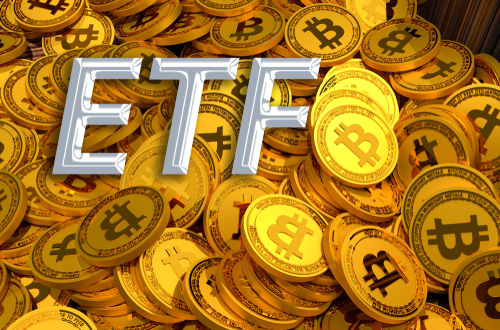
The United States Securities and Exchange Commission (SEC) has rejected numerous Bitcoin spot exchange-traded fund (ETF) applications submitted over the past few years.
Grayscale Investments CEO Michael Sonnenshein told CNBC’s ETF Edge in a recent interview that he believes it is only a matter of time before the SEC approves a spot Bitcoin ETF proposal.
The SEC has so far rejected every spot Bitcoin ETF proposal it has reviewed. However, Sonnenshein said it is a matter of when, not if, the SEC approves one of them. He said;
“From the SEC standpoint, there were several protections that 40 Act products have that 33 products don’t have, but never ever did those protections address the SEC’s concern over the underlying bitcoin market and the potential for fraud or manipulation.”
The Grayscale CEO further added that;
“So the fact that they’ve now evolved their thinking and approved a 33 Act product with Teucrium really invalidates that argument and talks to the linkage between the bitcoin futures and the underlying bitcoin spot markets that give the futures contracts their value.”
The SEC has approved a few Bitcoin futures ETFs, and they are already trading on the stock exchange. However, the regulatory agency said it is concerned about the lack of regulation in the crypto space. Hence, the hesitance to approve a spot Bitcoin ETF.
Sonnenshein believes the SEC will soon approve a spot Bitcoin ETF. He told CNBC that;
“It really is, in our opinion, a matter of when and not if there is a bitcoin spot ETF. If the SEC can’t look at two like issues, the futures ETF and the spot ETF, through the same lens, then it is, in fact, potentially grounds for an Administrative Procedure Act violation.”
Grayscale is one of the firms to currently have a spot Bitcoin ETF proposal in front of the US SEC. The regulatory agency is still reviewing the proposal and is yet to give its verdict.
Many experts believe the launch of a spot Bitcoin ETF will help attract more institutional investors to the crypto space. Spot Bitcoin ETFs are already trading in certain countries, including Canada and Brazil.

